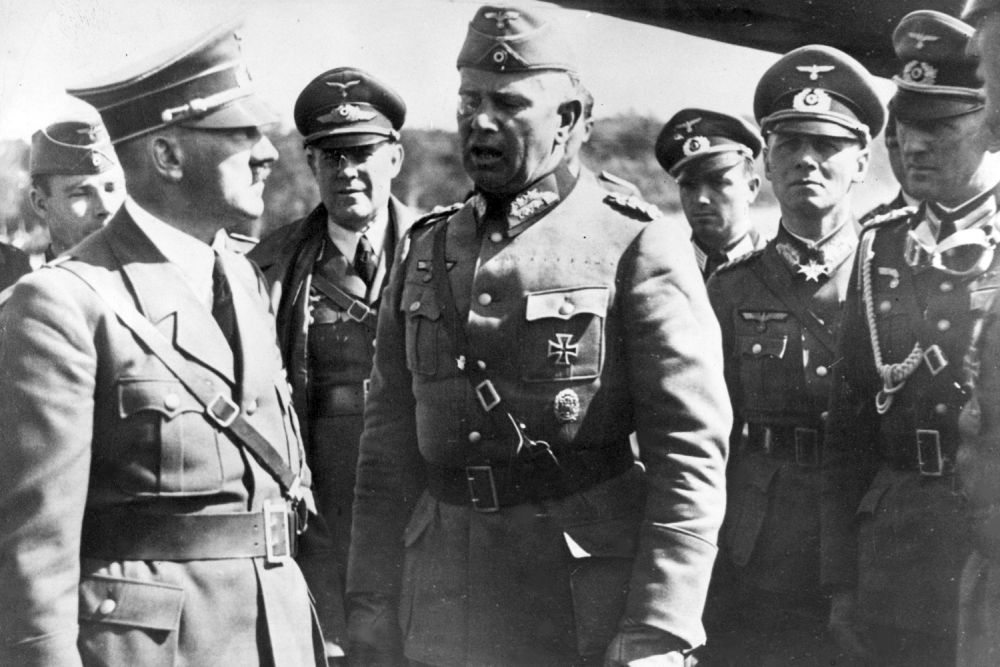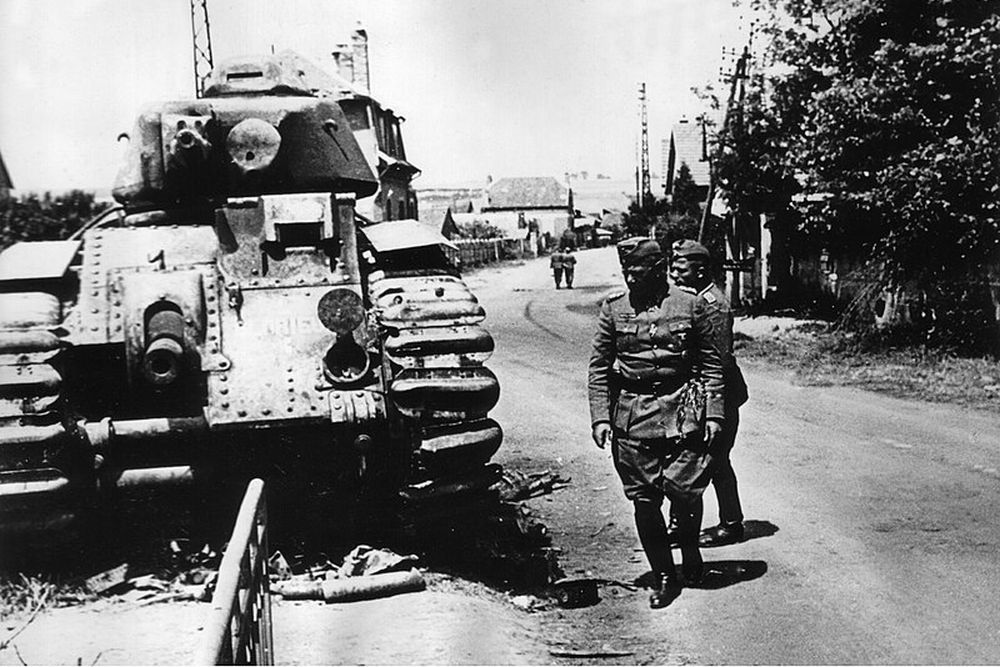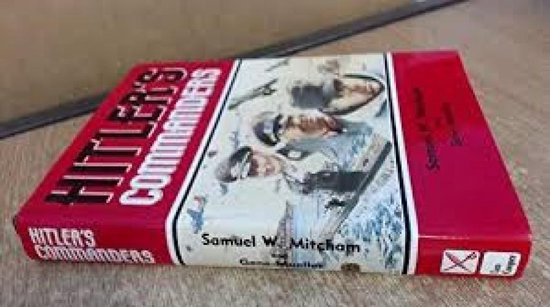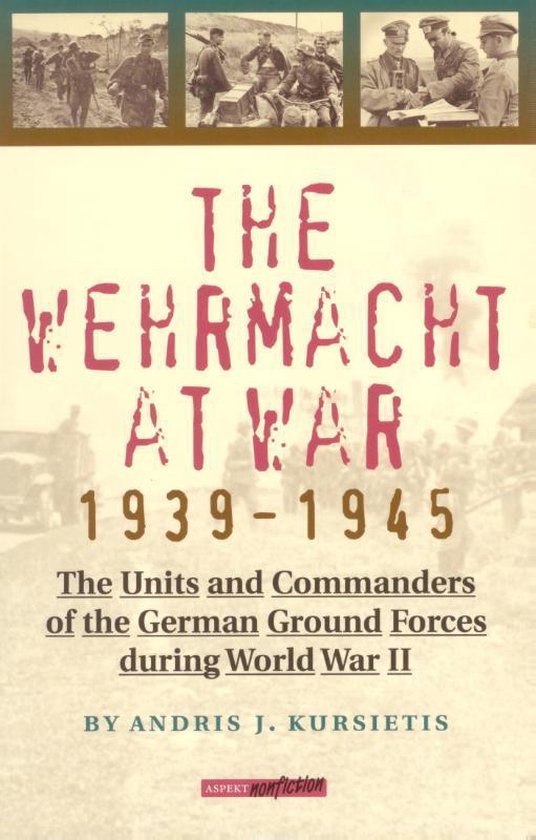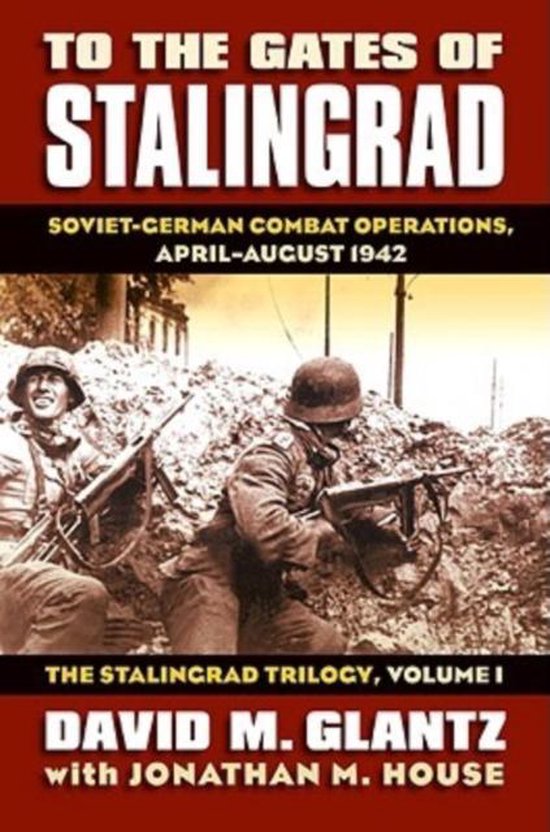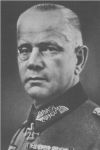Inleiding
Walther von Reichenau was a confidant of Adolf Hitler and had responsibility in the assacianation of Ernst Röhm and the deminishing of the SA during the Night of the long Knives". In 1940 he was promoted to Generalfeldmarschall and was also responsible for many warcrimes committed at the Easter front by military under his command. He became seriously ill in January 1942 and deid on his way to a hospital in Leipzig.
Definitielijst
- Night of the long Knives
- Night of 30 June to 1 July 1933 during which Hitler killed many of the demanding leaders of the SA, including Ernst Röhm.
Until the first World War
Walther von Reichenau was born October 8th, 1884 in Karlsruhe. He descended from a typical Prussian military family. His father was Generalleutnant in the Prussian army. In 1903, after graduation, Walther followed in the foot prints of his father and enrolled in the army. He was posted to the 1.Garde-Feldartillerie-Regiment in 1904, and in the same year he was promoted to Leutnant. After a few years in service and study at the Kriegsakademie from 1911 onwards, he was promoted to Oberleutnant in 1913.
During World War One he served at the western front and was awarded the Eisernes Kreuz (Iron Cross). At the onset of war, he served as adjutant to the 1.Garde-Feldartillerie-Regiment and he was promoted to Hauptmann in 1914. The next year he was transferred to the General Staff. In 1915 he served as 2.Generalstabsoffizier in the 47.Reserve-Infanterie-Division and subsequently as 1.Generalstabsoffizier in the 7.Kavalerie-Schul-Division. In 1919, he married Alexandrine Gräfin von Maltzan.
Definitielijst
- Eisernes Kreuz
- Iron Cross. German military decoration.
- Iron Cross
- English translation of the German decoration Eisernes Kreuz.
- Regiment
- Part of a division. A division divided into a number of regiments. In the army traditionally the name of the major organised unit of one type of weapon.
Interbellum
In the period between the armistice and his entry into the Reichswehr in 1919, he served in the Grenzschutz (border protection) as Generalstabsoffizier in Silesia and Pommerania for a while. Thereafter he made a career in the Reichswehr, entering in the rank of Hauptmann. Between 1920 and 1922, he served as Generalstabsoffizier in Wehrkreis VI and then was placed in command of 8. Maschinengewehrkompanie. Following his promotion to Major in 1924, he served in Wehrkreis III in Berlin. Between 1927 and 1929 he was commander of 8. Nachrichtenbattalion (communication unit) in Stuttgart and until 1931 he was chief of staff of the Nachrichteninspektion at the Reichswehrministerium in the rank of Oberstleutnant. In February 1931 he was appointed chief of staff of Wehrkreis I in eastern Prussia, serving under General Werner von Blomberg, someone who would play an important role in his future career. In 1932, his uncle Friedrich van Reichenau, a Nazi, introduced him to Adolf Hitler (Bio Hitler). Walther was impressed by the man and soon joined the N.S.D.A.P.
On February 1st, 1933 Von Reichenau was appointed chief of the Ministeramt (cabinet) at the Reichswehrministerium and personal advisor to Werner von Blomberg. Via him he made contact with ever more leading Nazis. Von Reichenau and Von Blomberg worked closely together to force Kurt Hammerstein-Equord, a convinced Nazi, to retire as commander of the army. Von Blomberg managed to persuade Hitler to appoint Von Reichenau to that post but after vehement protests from the officers’ corps, Reichspräsident Paul von Hindenburg did not approve and appointed General Werner von Fritsch instead.
On February 1st, 1934, in connection with the transformation of the Reichswehr into the Wehrmacht, Von Reichenau was given the post of chief of the Wehrmachtsamt in the rank of Generalmajor. He now was the most important person to maintain the contacts between the Wehrmacht and the N.S.D.A.P. On June 30th of that year, he pronounced himself in favor of the monopoly of the Wehrmacht as the only "Waffenträger der Nation" (bearer of arms of the nation). In short, the Wehrmacht was, in his view, the only armed force in Germany.
That statement by Von Reichenau must be seen against the background of events that grew into a climax on June 29th, 1934. In 1933, following Hitler’s seizure of power, Von Reichenau and Von Blomberg were deeply worried about the enormous power of the Sturmabteilung, the SA. The street gangs of the SA had played an important role in creating the power base Hitler could lean on on his way to the seizure of power. The SA meanwhile had grown into a formidable state within the state and its leader Ernst Röhm claimed increasingly more authority in military affairs. On October 2nd, 1933 he wrote a letter to Von Reichenau in which he stated: "I now consider the Reichswehr a training school only for the German population. The conduct of war and hence the mobilization will be the duties of the SA in the future."
The army officers grew more and more irritated by the increasing power of the SA and Von Reichenau feared a military coup against Hitler. If that was to become reality, it would spell the end of Von Reichenau’s career. Therefore he entered into a conspiracy against Röhm and his SA with Hermann Göring (Bio Göring), and Heinrich Himmler (Bio Himmler). It was decided Himmler would ask Reinhard Heydrich (Bio Heydrich), chief of the R.S.H.A., to open a "file" on Röhm. In it, large sums of money were mentioned, Röhm allegedly would have received from the French government in order to dethrone Hitler. Initially, Hitler was not convinced but rumblings among industrialists about Röhm’s socialist view on the economy and the fact that Röhm was homosexual finally convinced Hitler. During the Night of the Long Knives, Röhm and many other high ranking SA members were arrested and murdered. Von Reichenau made integration of the army in the Nazi regime as soon as possible his goal. No wonder he was called the political general.
October 1st, 1935 saw him promoted to Generalleutnant and he was given command of VII.Artilleriekommando in Munich. He was succeeded as chief of the Wehrmachtsamt by Wilhelm Keitel. A year later, he was promoted to General der Artillerie. When Werner von Blomberg was forced to retire in 1938, Adolf Hitler wanted Walther von Reichenau to take the post of commander- in-chief but after protests from veterans such as Gerd von Rundstedt (Bio Von Rundstedt) and Franz Halder, Hitler revoked his decision. Instead, Von Reichenau was placed in command of Heeresgruppe 4 in Leipzig, succeeding Walther von Brauchitsch (Bio Von Brauchitsch) who was appointed supreme commander of the army. Next, Von Reichenau took part in the occupation of the Sudetenland.
Definitielijst
- Heeresgruppe
- The largest German ground formation and was directly subordinate to the OKH. Mainly consisting of a number of “Armeen” with few directly subordinate other units. A Heeresgruppe operated in a large area and could number several 100,000 men.
- mobilization
- To make an army ready for war, actually the transition from a state of peace to a state of war. The Dutch army was mobilized on the 29 August 1939.
- Nazi
- Abbreviation of a national socialist.
- Night of the Long Knives
- Night of 30 June to 1 July 1933 during which Hitler killed many of the demanding leaders of the SA, including Ernst Röhm.
- Reichswehr
- German army during the Weimar republic.
- Sturmabteilung
- Storm detachment. Semi-military section of the NSDAP. Founded in 1922 to secure meetings and leaders of the NSDAP. Their increasing power was stopped during “The night of the long knives”, 29 and 30 June 1934.
- Wehrmacht
- German armed military forces, divided in ground forces, air force and navy.
World War Two
At the onset of World War Two Walther von Reichenau was in command of 10.Armee during the invasion of Poland. October 1st,1940, he was promoted to Generaloberst. In May 1940, he commanded 10.Armee during Fall Gelb and accepted the capitulation of Belgium. On July 19th that year, Hitler promoted him to Generalfeldmarschall.
During Operation Barbarossa, he again commanded 10.Armee, capturing Kiev and Krakow. During the operations in the Soviet Union, he showed his nature as member of the N.S.D.A.P. and fanatic anti-Semite. He openly supported the actions of the Einsatzgruppen (Einsatzgruppen Art.) against the Jewish citizens in the occupied territories of the Soviet Union. His so called Reichenaubefehl of October 10th, 1941 is particularly notorious, calling upon his soldiers to support Hitler’s Weltanschauungskrieg (war about the view on the world) and to understand the "justified extermination of the Jewish Untermenschen" (sub humans). This also made him one of Hitler’s most favorite officers. In November, Hitler attempted again to appoint Von Reichenau commander-in-chief following the discharge of Walther von Brauchitsch but again he was forced to bow to the opinion of the other Wehrmacht commanders who considered Von Reichenau too political. In the end, Franz von Halder was appointed. Von Reichenau became the new commander of Heeresgruppe Süd though, replacing Gerd von Rundstedt who had fallen from grace.
In order to stay fit, Von Reichenau exercised in the woods every day. On January 12th, 1942, he had been running for miles in temperatures of 40 degrees below zero. On his return he did not feel well and later in the day, he suffered a massive heart attack. After having been unconscious for five days, it was decided to fly him to Leipzig for treatment. On January 17th, however, the aircraft crashed during an intermediate stop in Poltawa in the Ukraine. Von Reichenau succumbed to his serious injuries. He was buried on the Invalidenfriedhof (cemetery of the disabled) in Berlin.
Read more about the decorations of this person on TracesofWar.com
Definitielijst
- capitulation
- Agreement between fighting parties concerning the surrender of a country or an army.
- Heeresgruppe
- The largest German ground formation and was directly subordinate to the OKH. Mainly consisting of a number of “Armeen” with few directly subordinate other units. A Heeresgruppe operated in a large area and could number several 100,000 men.
- invasion
- Armed incursion.
- Soviet Union
- Soviet Russia, alternative name for the USSR.
- Wehrmacht
- German armed military forces, divided in ground forces, air force and navy.
Information
- Article by:
- Wilco Vermeer
- Translated by:
- Arnold Palthe
- Published on:
- 19-01-2025
- Feedback?
- Send it!
Related sights
Related books
Sources
- BARNETT, C., Hitler's Generals, Grove Press, New York, 1989.
- CRAIG, WILLIAM, Enemy at the gates: The battle for Stalingrad, Konecky & Konecky, USa, 1973.
- FELLGIEBEL, W.P., Die Träger des Ritterkreuzes des Eisernen Kreuzes 1939-1945, Podzun-Pallas Verlag, Eggolsheim-Bammersdorf, 2000.
- GLANTZ, D.M., To the Gates of Stalingrad, University Press of Kansas, Lawrence, 2009.
- KURSIETIS, A.J., The Wehrmacht at War 1939-1945, Uitgeverij Aspekt, Soesterberg, 1999.
- MITCHAM, S.W., Hitler's Commanders, Leo Cooper, 1992.
- SCHERZER, V., Die Ritterkreuzträger 1939–1945, Scherzers Miltaer-Verlag, Jena, 2005.
